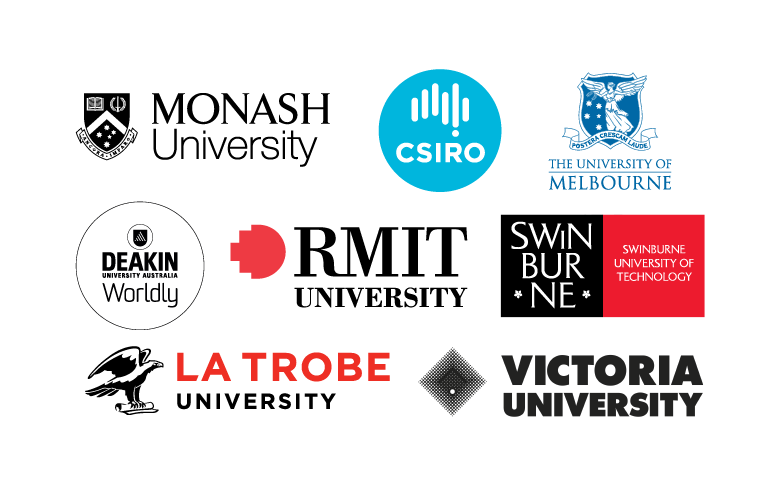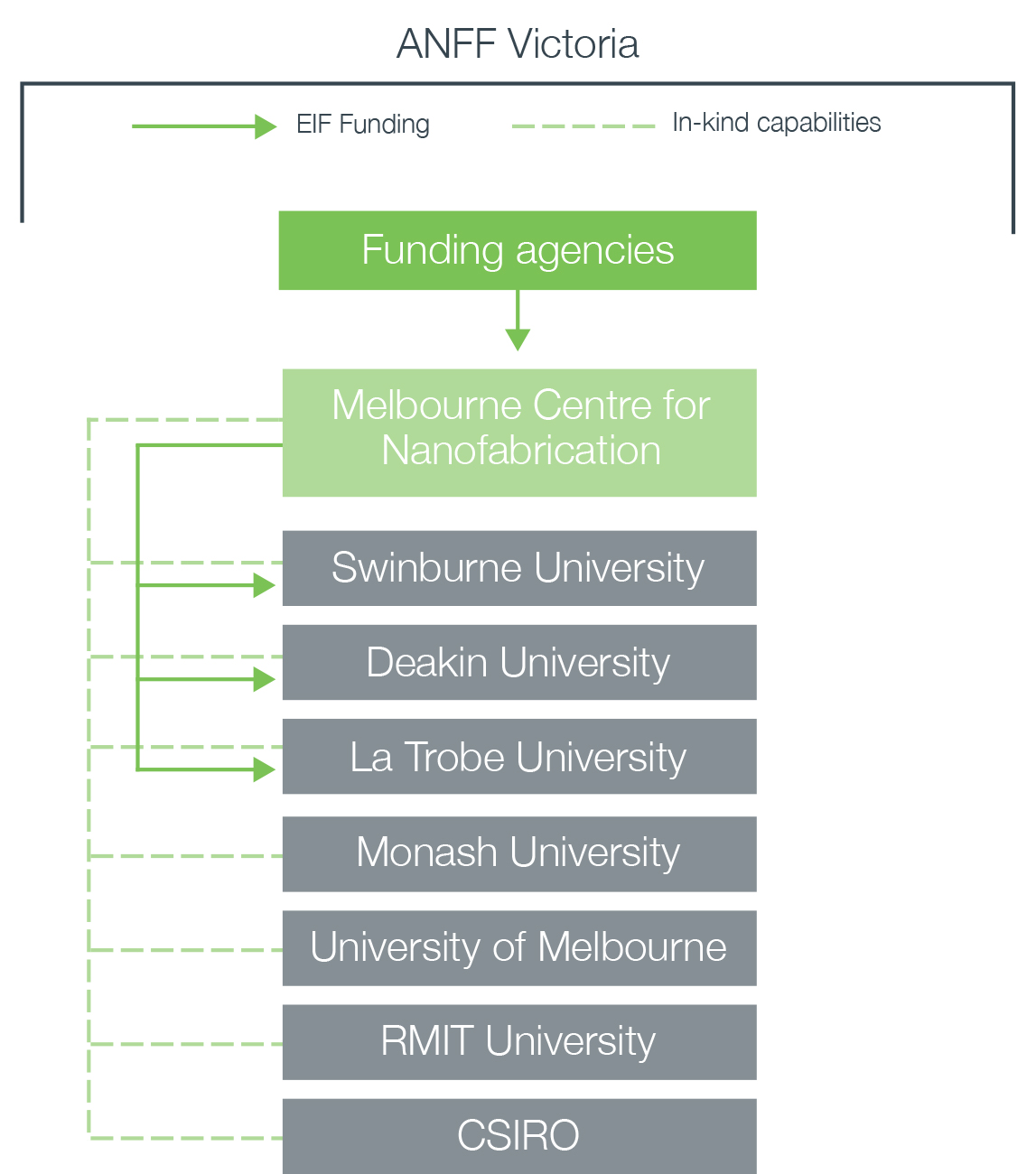Governance and Network
Strategy
The ANFF-VIC node's Strategic Plan for 2023-2028 can be found here.
Governance & funding
The MCN is a joint venture between seven Victorian universities and the CSIRO. It was developed with significant funding from the Australian Federal Government and the Victorian State Government, as well as our partner institutions. Total infrastructure investment to date has been approximately $50 million.
The MCN is the flagship facility within the Australian National Fabrication Facility (ANFF) Victorian Node and is also home to the ANFF national headquarters.

ANFF Victoria supporting capabilities
The MCN is a joint venture facility which is partnered with eight victorian research institutions, who offer technical expertise and in-kind capabilities. These in-kind capabilities are:
Monash University - Monash Centre for Electron Microscopy
University of Melbourne -Materials Characterisation and Fabrication Platform
Deakin University - Institute for Frontier Materials
La Trobe University - Centre for Materials Surface Science
Swinburne University of Technology - ANFF Biointerface Engineering Hub
RMIT University - Micro Nano Research Facility
CSIRO - CSIRO Manufacturing Flagship
Each of these partners provide specialised technologies to support the micro- nanotechnologies available at MCN. Swinburne University, Deakin University and La Trobe University have also been recipients of Education Investment Fund (EIF) federal government support through the ANFF Victorian Node for establishing niche fabrication technologies in the host institutions.
The organisational chart below highlights the ANFF Victorian Node structure including infrastructure investment sites and the broader in-kind capability supporting network. For more information on each of the partners and their capabilities, click on the links above.
ANFF
Established in 2007 under the National Collaborative Research Infrastructure Strategy (NCRIS), the Australian National Fabrication Facility links MCN with seven university-based nodes throughout Australia to provide researchers with access to state-of-the-art fabrication facilities, regardless of their geography of home institution.
The ANFF commitment is to provide a world-class user facility which is underpinned by the sharing of best practices in service provision across the nodes.
The capability provided by ANFF enables users to process hard materials (metals, semiconductors, composites and ceramics) and soft materials (polymers and polymer-biological moieties) and transform these into structures that have applications in sensors, medical devices, nano-photonics and nano-electronics.
More information can be found at www.anff.org.au




